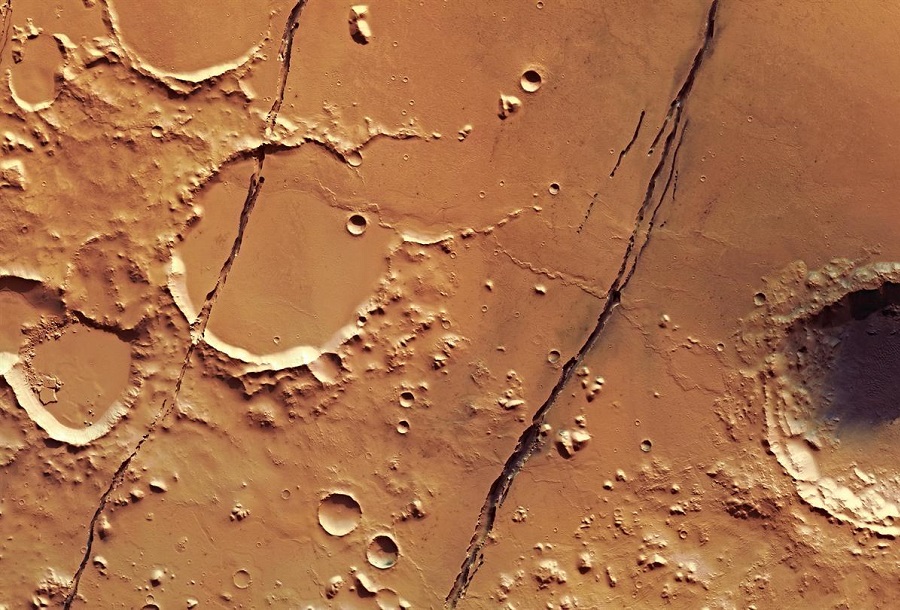The analysis of data on marsquakes performed by the InSight apparatus indicates that their only source can only be the movement of magma in the depths of the Red Planet. In fact, Mars is not as dead as it was thought. And this prompts new thoughts about the reasons for its lack of a magnetic field.

Marsquakes at the Cerberus Fossae
Hrvoje Tkalcic from the Australian National University and his Chinese colleague Weijia Sun came to the conclusion that there is liquid magma under the surface of Mars. They made this conclusion after analyzing the seismographic observations that the InSight probe has carried out on the Red Planet since 2018.
The scientists reported their findings in a publication in Nature Communications. During four years of work near the extinct volcano Elysium InSight recorded hundreds of marsquakes. This amount was enough for scientists to map the depths of Mars. Thanks to it, they tried to detect traces of marsquakes, which the device did not notice.
And such traces were found. 47 previously unknown tectonic events were found near the Cerberus Fossae, an area near Elysium. At the same time, the nature of wave propagation from them was very similar to that observed during those earthquakes that InSight was able to track.
What causes marsquakes?
Next, the scientists decided to check whether any external factor affects the appearance of these marsquakes. For example, they could be caused by the Martian moon Phobos. However, data analysis did not find such coincidences. Therefore, the cause of not so rare seismic events can only be the movement of magma in the depths of Mars.
Previously, scientists investigating the Cerberus Fossae have already proved that this region remains seismically active. At the same time, activity in it was observed relatively recently — the last 10 million years. Now it is definitely confirmed. And it is quite possible that Mars as a whole remains a living planet.
Mystery of the magnetic field
But the conclusion about the preservation of tectonic activity on Mars contradicts generally accepted ideas about this planet. In particular, it is known for sure that it has almost no magnetic field. On Earth, the source of this protection from charged particles is the movement of matter in its depths. Therefore, in relation to our neighbor, we were sure of the reasons for its absence.
But now it turns out that the ideas about the termination of tectonic processes on Mars hundreds of millions of years ago are wrong. At least, local magma movement occurs on it. Therefore, there must be some other mechanism for how the Red Planet lost its magnetic field.
According to www.sciencealert.com
Follow us on Twitter to get the most interesting space news in time
https://twitter.com/ust_magazine

